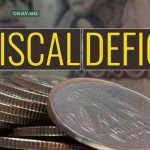To reshape Nigeria’s insurance landscape and bolster consumer confidence, the long-awaited Insurance Reform Bill is on the cusp of becoming law, pending presidential assent. This pivotal legislation promises to introduce a compensation fund for policyholders of liquidated insurance firms and establish a separate fund to support victims of uninsured road accidents, according to Kunle Ahmed, chairman of the Nigerian Insurers Association (NIA).
Speaking at a quarterly press briefing in Lagos, Ahmed emphasized the transformative nature of the bill, highlighting its potential to overhaul the regulatory framework governing the nation’s insurance sector. “The Insurance Reform Bill includes provisions designed to protect policyholders adequately,” Ahmed stated. “A fund has been set aside to meet requests of policyholders whose primary insurance company is liquidated or faces challenges, addressing recent occurrences in the industry.” This provision directly addresses a critical pain point for consumers, offering a safety net in the event of unforeseen financial difficulties faced by their insurers.
Furthermore, the bill extends its protective arm to vulnerable road users. “Additionally, a fund is included in the bill for uninsured road accident victims,” Ahmed revealed. This initiative is particularly crucial in a country with a high rate of road accidents and a significant number of uninsured vehicles, offering a lifeline to those who would otherwise be left without recourse. “These sections of the bill are expected to enhance trust in the insurance industry,” the NIA chairman asserted, underscoring the potential for increased public confidence in the sector.
Beyond consumer protection, the reform bill also aims to strengthen the financial standing of insurance companies. “The bill also reflects increased capital requirements, which we believe will lead to stronger and more virile insurance companies that can develop new products and address the pain points of consumers,” Ahmed explained. This move is anticipated to foster a more stable and resilient insurance market capable of better serving the needs of Nigerians.
Addressing the ongoing discussions surrounding the tax reform bill at the National Assembly, Ahmed conveyed the NIA’s active engagement with the government. “Changes to any tax bill could impact various sectors of the economy, including insurance. We have made a representation to the government regarding the taxation of insurance premiums, emphasising that some premium belongs to shareholders, especially on the life insurance side, and this concern is being taken seriously.” This proactive approach demonstrates the industry’s commitment to ensuring a fair and sustainable fiscal environment.
In a positive development for road safety and insurance compliance, Ahmed lauded the collaborative efforts between law enforcement and regulatory bodies in enforcing third-party motor insurance. “For us at NIA, the enforcement of the third-party policy is largely to the benefit of policyholders,” he affirmed. “Policyholders are entitled to compensation for their liabilities in terms of injury or death to third parties, which is unlimited.” While specific figures on the growth of third-party policies since the increased enforcement were not immediately available, Ahmed indicated a positive trend.
Read Also: Nigerian Insurance Sector Shows Resilience, Assets Surge 5.1% in Q3 2024
The commitment to fulfilling obligations remains paramount for insurers, according to Ahmed. “The hallmark of any licensed insurance company is the timely payment of claims,” he emphasized. “Insurance companies are ready and willing to pay valid claims. The enforcement of the third-party policy is a welcome development for the economy, for the insurance companies, and for policyholders.” He envisioned a future where road accidents are handled with greater civility and less conflict due to the assurance of insurance coverage.
Acknowledging that improvements can still be made, Ahmed stated, “Despite the amount paid in claims, we believe there is more to achieve in terms of the ease and timeliness of claims payments.” He revealed ongoing efforts within the industry to streamline the claims process by reducing the number of required documents.
Looking at the broader performance of the insurance sector, Ahmed highlighted significant growth. “The industry has grown significantly, noting that while non-life business has seen notable growth, largely driven by fire and oil and gas policy, the life business has also experienced growth, driven by group life policy.” He expressed optimism about the future, stating, “The growth we have seen is likely to be sustained, and we will have a very vibrant and growing insurance market in Nigeria.” Beyond gross written premiums, Ahmed also noted a substantial increase in the industry’s net assets.
The anticipated assent to the Nigerian Insurance Reform Bill marks a watershed moment for the nation’s financial sector, promising enhanced security and protection for both policyholders and the wider public. As the bill awaits the final step in its legislative journey, stakeholders and citizens alike are hopeful that its implementation will usher in a new era of trust and stability within the Nigerian insurance industry.













